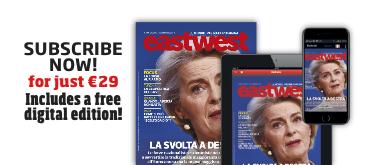The end of the so-called “Sober October” calls for a series of routine reflections on the consumption of alcohol in the United Kingdom. Many Britons proudly identify themselves with the UK drinking culture, seeing it as a joyful part of being British.

Indeed, the cosy and relaxed atmosphere of British pubs is envied all over the world and many attempts have been made at reproducing it elsewhere.
Clearly widespread alcohol consumption is not something unique to the UK, but there is a dark side to the UK drinking culture that is generally not found in countries, such as France, where alcohol consumption is actually higher than in the UK. That is the urge to drink and to drink a lot.
In a regional study Public Health England has warned that the increase of the number of people dying of liver disease (plus 40% in the past decade) is the result of an increase in alcohol consumption.Liver disease is the only cause for death and sickness that is on the rise in England while falling in the rest of Europe. Another study conducted last year by researchers at University College London on the real consumption of alcohol in England found that there is a gap between the sales of alcohol and the amount people claim to consume. Assuming that under-reporting was the same across all groups included in the survey, the researchers found that 75% of men and 80% of women were drinking above the daily limit.
Arguably, binge-drinking (drinking over twice the recommended units of alcohol per day in one session) is a habit that many pick up when they are young.
Thus it is worrying thatalcohol consumption amongst studentsoftentakes place in the most absurd ways. Drinking is usually what social events are primarily based on (wine and cheese, pub crawls, beer pongs etc.) and drunkenness is not merely the consequence of drinking but its very scope.Similarly, there are several ways one can achieve that desired state of inebriation quickly: pre-drinking before going out is a must-do,drinking games are never missing from parties, nor are gadgets to facilitate rapid consumption of alcoholsuch as the beer bong. In all cases the main purpose is getting drunk as soon as possible.
As one excess is usually followed by its opposite, laws regulatingregulate the purchase, sale, and consumption of alcohol are sometimes almost absurdly strict. While the decision of the government to ban the sale of ultra-cheap alcohol in the supermarkets of England and Wales could indeed discourage the purchase of alcohol other regulations seem to aim more at sending the message that the issue is being tackle rather than effectively tackle it. For instance, most places selling alcohol can only do so within specific time slots (except for those having a special licence to sell alcohol 24 hours a day). In Scotland alcohol can be purchased only between 10am and 10pm. It is unclear how this should discourage alcohol consumption.
Eventually, drinking is considered so normal that not drinking has become a heroic act as demonstrated by Macmillan’s Sober October campaign. The initiative of the Macmillan Cancer Support consists in getting people to give up alcohol for a month in order to raise funds for cancer patients. Participants are called “sober-heroes” and they are told they are doing “something amazing”. People supporting their endeavour donate to Macmillan. If giving up alcohol is too hard, participants can conveniently buy their heroism by purchasing a Golden Ticket. Abstinence has become something that one displays with pride.
Indeed, the cosy and relaxed atmosphere of British pubs is envied all over the world and many attempts have been made at reproducing it elsewhere.






